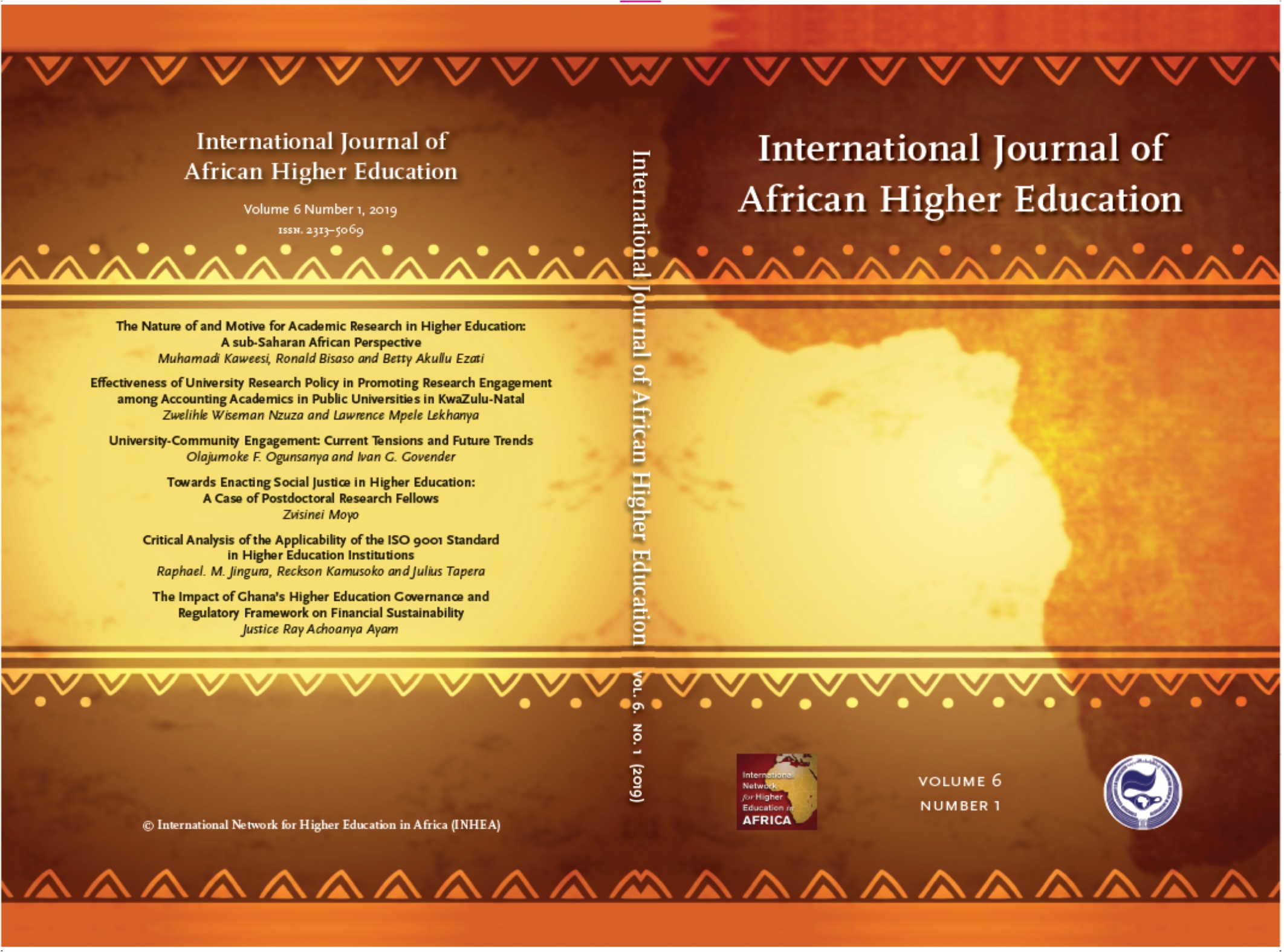Critical Analysis of the Applicability of the ISO 9001 Standard in Higher Education Institutions
DOI:
https://doi.org/10.6017/ijahe.v6i1.10671Abstract
This paper analyses the applicability of the ISO 9001 standard in higher education institutions (HEIs). The ISO 9001standard, initially developed for application in industry, sets the requirements for implementing a quality management system (QMS) in an organisation. Over the years, the standard has been adapted to the higher education (HE) sector as a model for quality assurance and enhancement. In this study, the standard is analysed based on a framework with the following variables; 1) Importance of the philosophy of the standard in HE, 2) Suitability to HE, 3) Ease of implementation, 4) Effect on quality assurance and enhancement and 5) Effect on quality culture. The mechanisms of how the standard affects quality management are also presented. The analysis shows that ISO 9001 is based on a philosophy that resonates with general approaches to quality assurance in HEIs. The seven principles of the standard provide a good base for an effective QMS. The standard is suitable to HEIs as its provisions can be adapted to the peculiarities of this sector. Although there is some considerable workload exerted by the standard, it can be applied with ease. There is both theoretical and empirical basis for the standard to embolden quality assurance and enhancement in HE. Both academic provision and administrative services can benefit from the standard. The standard can promote and strengthen quality culture in HEIs, more so where staff show deep engagement with the processes of the standard. It is concluded that the ISO 9001 standard provides a framework for a QMS that is applicable to the HE sector.
Downloads
Published
How to Cite
Issue
Section
License
Copyright (c) 2020 Reckson Kamusoko

This work is licensed under a Creative Commons Attribution-NonCommercial-NoDerivatives 4.0 International License.

